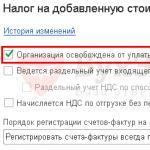Article 228. Peculiarities of tax calculation in relation to certain types of income. Tax payment procedure
1. Calculation and payment of tax in accordance with this article is carried out by the following categories of taxpayers:
1) individuals - based on the amounts of remuneration received from individuals and organizations that are not tax agents, on the basis of concluded employment contracts and civil contracts, including income from employment contracts or lease agreements of any property;
2) individuals - based on the amounts received from the sale of property owned by these persons and property rights, except for the cases provided for in paragraph 17.1 of Article 217
3) individuals - tax residents of the Russian Federation, with the exception of Russian military personnel specified in paragraph 3 of Article 207 of this Code, receiving income from sources located outside the Russian Federation - based on the amounts of such income;
4) individuals receiving other income, upon receipt of which tax was not withheld by tax agents, with the exception of income, information about which is presented by tax agents in the manner established by paragraph 5 of Article 226 and paragraph 14 of Article 226.1 of this Code - based on the amounts of such income;
5) individuals receiving winnings paid by lottery operators, distributors, organizers of gambling conducted in a bookmaker's office and totalizator - based on the amount of such winnings not exceeding 15,000 rubles, as well as individuals receiving winnings paid by gambling organizers , not related to gambling in a bookmaker's office and sweepstakes - based on the amounts of such winnings;
6) individuals receiving income in the form of remuneration paid to them as heirs (successors) of authors of works of science, literature, art, as well as authors of inventions, utility models and industrial designs;
7) individuals receiving from individuals who are not individual entrepreneurs income in cash and in kind by way of gift, except for the cases provided for in paragraph 18.1 of Article 217 of this Code, when such income is not subject to taxation;
8) individuals receiving income in the form of the cash equivalent of real estate and (or) securities transferred to replenish the endowment capital of non-profit organizations in the manner established by Federal Law of December 30, 2006 N 275-FZ "On the procedure for the formation and use of endowment capital non-profit organizations", except for the cases provided for in paragraph three of paragraph 52 of Article 217 of this Code.
2. Taxpayers specified in paragraph 1 of this article shall independently calculate the amount of tax payable to the relevant budget in the manner established by Article 225 of this Code.
The total amount of tax payable to the relevant budget is calculated by the taxpayer taking into account the amounts of tax withheld by tax agents when paying income to the taxpayer. At the same time, losses from previous years incurred by an individual do not reduce the tax base.
3. Taxpayers specified in paragraph 1 of this article are required to submit a corresponding tax return to the tax authority at the place of their registration.
The paragraph has been deleted. - Federal Law of December 29, 2000 N 166-FZ.
4. The total amount of tax payable to the relevant budget, calculated on the basis of the tax return taking into account the provisions of this article, is paid at the taxpayer’s place of residence no later than July 15 of the year following the expired tax period.
5. Lost power. - Federal Law of July 27, 2010 N 229-FZ.
6. Taxpayers who have received income, information about which is submitted by tax agents to the tax authorities in the manner established
1. Calculation and payment of tax in accordance with this article is carried out by the following categories of taxpayers: 1) individuals - based on the amounts of remuneration received from individuals and organizations that are not tax agents, on the basis of concluded employment contracts and civil contracts, including income from rental agreements or lease agreements of any property; 2) individuals - based on the amounts received from the sale of property owned by these persons and property rights, with the exception of cases provided for in paragraph 17.1 of Article 217 of this Code, when such income is not subject to taxation; 3) individuals - tax residents of the Russian Federation, with the exception of Russian military personnel specified in paragraph 3 of Article 207 of this Code, receiving income from sources located outside the Russian Federation - based on the amounts of such income; 4) individuals receiving other income, upon receipt of which tax was not withheld by tax agents - based on the amounts of such income; 5) individuals receiving winnings paid by lottery organizers and gambling organizers, with the exception of winnings paid at a bookmaker's office and sweepstakes - based on the amounts of such winnings; 6) individuals receiving income in the form of remuneration paid to them as heirs (successors) of authors of works of science, literature, art, as well as authors of inventions, utility models and industrial designs; 7) individuals receiving from individuals who are not individual entrepreneurs income in cash and in kind by way of gift, except for the cases provided for in paragraph 18.1 of Article 217 of this Code, when such income is not subject to taxation; 8) individuals receiving income in the form of the cash equivalent of real estate and (or) securities transferred to replenish the endowment capital of non-profit organizations in the manner established by Federal Law of December 30, 2006 N 275-FZ "On the procedure for the formation and use of endowment capital non-profit organizations", except for the cases provided for in paragraph three of paragraph 52 of Article 217 of this Code. 2. Taxpayers specified in paragraph 1 of this article shall independently calculate the amount of tax payable to the relevant budget in the manner established by Article 225 of this Code. The total amount of tax payable to the relevant budget is calculated by the taxpayer taking into account the amounts of tax withheld by tax agents when paying income to the taxpayer. At the same time, losses from previous years incurred by an individual do not reduce the tax base. 3. Taxpayers specified in paragraph 1 of this article are required to submit a corresponding tax return to the tax authority at the place of their registration. The second paragraph has been deleted. 4. The total amount of tax payable to the relevant budget, calculated on the basis of the tax return taking into account the provisions of this article, is paid at the taxpayer’s place of residence no later than July 15 of the year following the expired tax period. 5. Lost power.
Legal advice under Art. 228 Tax Code of the Russian Federation
Question answered over the phone
Question answered over the phone
Question answered over the phone
- Lawyer's answer:
Maxim Grigorushkin
Is this legal? After all, we received 500,000 rubles each. After my mother’s death, my brothers and I got a house, we sold it for 1,500,000 rubles. The money was divided into 500,000 rubles, three of us brothers. Now the tax office requires you to pay income tax.
- Lawyer's answer:
An individual, in the event of a sale of real estate in accordance with subparagraph 2 of paragraph 1 of Article 228 of the Tax Code of the Russian Federation, is obliged to independently calculate (by filing a tax return) and pay the tax. You have the right to receive a tax deduction in the amount of 1,000,000 rubles. If less than three years have passed since you received the certificate of state registration of title, and the house is more expensive than a million rubles, then you will have to pay tax when selling it. In your case, the tax on income when selling a house is (1,500,000-1,000,000) x 13% = 65,000 rubles from all. And it is necessary to submit a declaration form 3-NDFL to the tax office. and then pay income tax and late fees.
- Lawyer's answer:
- Lawyer's answer:
Tax on the sale of property (housing) Any citizen who sells an apartment or any other property, according to tax legislation, receives a profit from the sale, therefore, is obliged to pay a tax to the state for the income received. Conditions for paying tax when selling property: According to Article 220 of the Tax Code of the Russian Federation, the tax on property sold (real estate) is 13% of the amount received in excess of 1 million rubles from the cost of the apartment. That is, if the apartment was sold for more than a million, the tax is paid not on the full price, but on the share that exceeds the amount of a million. For non-Russian citizens, the tax is 30% of the cost. The tax only applies to real estate owned for less than 3 years. If the property is owned for more than 3 years, no tax is paid at all, regardless of the sale amount. Filing a tax return is required. Ignoring this fact can lead to penalties, their value ranges from 1 to 5 minimum wages. It is important to remember: the tax authority considers ownership from the date indicated on the certificate of title. Please note: in accordance with subparagraph 2 of paragraph 1 of Article 228 of the Tax Code of the Russian Federation, the taxpayer must independently calculate and pay the tax by correctly filling out the declaration. The declaration must be submitted no later than April 30 of the year following the year of sale. And the tax amount must be paid before July 15 of the following year. How to calculate the tax yourself: the tax is paid on net income, where the net income is equal to the difference between the amount from the sale of the apartment and the amount spent on the purchase of the apartment, this is confirmed by the purchase and sale agreement. if the cost of purchasing an apartment was less than 1 million, then 1 million rubles are subtracted from the sale price of the property and a 13% tax is paid on the remaining amount. In this case, net income is the difference between the sale price of the apartment and 1 million rubles. Nuances that arise when paying tax: When privatizing and inheriting housing, the owner does not have expenses for its purchase, which means that 1 million rubles are deducted from the cost of the apartment. Exchange of an apartment through purchase and sale does not exempt from paying tax. The money received from the sale is considered income, even if it is immediately used to purchase another home. However, if the sale amount is equal to the purchase amount, offset can be made. The same rules apply to dachas, garden houses, plots of land, and rooms. If residents have a share in the ownership of an apartment worth more than 1 million. rubles, the tax is divided by the number of owners, each of whom pays 13% of their profits. Parents pay tax for children as usual. The declaration consists of the following sheets: The title page and Section 6 are required to be completed by all taxpayers. SECTION 5 - Calculation of the tax base and the amount of tax on income taxed at a rate of 15%. SECTION 1 - Calculation of the tax base and the amount of tax on income taxed at a rate of 13%. APPENDIX A - Income from sources in the Russian Federation, taxed at the rate APPENDIX K - Calculation of standard and social tax deductions. When selling real estate - APPENDIX G1 - Calculation of INV based on income from the sale of property. If there is income that is partially not subject to taxation (financial assistance from the employer, gifts, prizes) - APPENDIX D1 Calculation of the amount of income not subject to taxation. Payment Deadlines After filing the return, the taxpayer receives a receipt, which is paid by July 15 of the year in which the return is filed. If you are late with payment, you will be subject to penalties.
- Lawyer's answer:
Evdokia Kudryavtseva
real estate sales tax
- Lawyer's answer:
-
- Lawyer's answer:
Income tax for individuals on income the source of which is a tax agent, with the exception of income in respect of which the calculation and payment of tax are carried out in accordance with Articles 227, 227.1 and 228 of the Tax Code of the Russian Federation: KBK 182 1 01 02010 01 1000 110 Taxation on The personal income tax rate of 9% is applied in the following cases: 1) upon receipt of dividends (clause 4 of article 224 of the Tax Code of the Russian Federation). The specified rate applies even if: - the deadline for paying dividends established by law has been violated (Letter of the Ministry of Finance of Russia dated September 19, 2011 N 03-04-06/3-225); - dividends were paid after the withdrawal of an individual from the organization’s membership (Letter of the Ministry of Finance of Russia dated November 1, 2011 N 03-04-05/3-826); - accrued dividends are paid from the property of the liquidated organization (Letter of the Ministry of Finance of Russia dated September 26, 2012 N 03-04-06/4-291);
- Lawyer's answer:
- Lawyer's answer:
No. Cases when individuals are required to independently calculate and pay personal income tax on income received are listed in paragraph 1 of Article 227 and paragraph 1 of Article 228 of the Tax Code, and the payment of income from bank deposits does not apply to them. Consequently, the responsibility for calculating and transferring personal income tax to the budget in such a situation will be borne by the tax agent, i.e., the bank (Article 226 of the Tax Code of the Russian Federation). In this case, the taxpayer himself does not have to submit a declaration. Personal income tax is calculated on the excess of the amount of interest accrued in accordance with the terms of the bank deposit agreement over the amount of interest calculated on ruble deposits based on the refinancing rate of the Central Bank of the Russian Federation in force during the period for which they were accrued (Article 214.2 of the Tax Code of the Russian Federation).
- Lawyer's answer:
Subparagraph 2 of paragraph 1 of Article 228 of the Tax Code of the Russian Federation states that when selling their own property, an individual must independently calculate personal income tax and pay it to the budget. As for the need for an agreement with an attachment, this idea is correct :) But I would also draw up a purchase act or an acceptance certificate for the agreement. Based on these documents, you can register the hives. It is better to state in the contract that the “physicist” seller owns these hives by right of ownership. Then he must independently calculate and pay personal income tax on such a sale (subclause 2, paragraph 1, article 228 of the Tax Code of the Russian Federation), and you, in turn, are not agents, therefore you are not required to withhold personal income tax upon purchase or submit information to the tax office.
- Lawyer's answer:
Ordinary citizens (and not just commercial or non-commercial legal entities and individual entrepreneurs) can be parties to a storage agreement, since Chapter 47 of the Civil Code on obligations arising from storage does not imply otherwise. In accordance with Art. 161 of the Civil Code, transactions between citizens for an amount of at least 10 minimum wages (i.e. 1000 rubles) must be concluded in writing. Therefore, if the remuneration for storing an item is 5,000 rubles, then the storage agreement is drawn up in writing. In accordance with paragraph 2 of Art. 887 of the Civil Code, the written form of the storage agreement is considered to be complied with if the acceptance of the thing is certified, including by a safekeeping receipt signed by the custodian. In accordance with Pupkin, who has undertaken to store the item for a fee, income arises that is subject to taxation on personal income tax at a rate of 13% (clause 1 of Article 224 of the Tax Code). In accordance with Articles 228 and 229 of the Tax Code, Pupkin is obliged to calculate this tax himself and, by April 30 of the year following the year in which he received the income, submit a personal income tax return to the tax authority at his place of residence. Finally, Pupkin will be required to pay the tax by July 15 of the year following the year in which he was paid remuneration for storing the item (Clause 4 of Article 228 of the Tax Code).
- Lawyer's answer:
you have won a non-cash prize. The procedure for paying tax on such winnings is described in paragraph 5 of Article 228 of the Tax Code of the Russian Federation. Namely: in this case, the person who received the winnings must pay personal income tax. The fact is that the organization that hosted the game cannot withhold tax from a non-cash prize. Therefore, she must calculate the tax and report its amount to the inspectorate within a month after giving out the prize. And the tax authorities, in turn, will send you a notification. In this case, you must pay tax as follows. Half of the tax amount - within 30 days after you receive the notice. And you must transfer the rest no later than 60 days after receiving the notification. Despite the fact that you will pay the tax based on the notification, at the end of the year you still need to submit a tax return to the inspectorate.
- Art. 226 Tax Code of the Russian Federation Tax Code of the Russian Federation. For reference - taxpayers on the basis of Article 277 - individuals registered in the manner prescribed by current legislation and carrying out entrepreneurial activities without forming a legal entity - according to the amount of income received from such activities; notaries engaged in private practice, lawyers who have established law offices and other persons engaged in private practice in accordance with the procedure established by current legislation. Article 227.1 - Foreign citizens engaged in labor activities for hire from individuals on the basis of a patent issued in accordance with Federal Law of July 25, 2002 N 115-FZ. Article 228 - 1) individuals - based on the amounts of remuneration received from individuals and organizations that are not tax agents, on the basis of concluded employment contracts and civil contracts, including income from employment contracts or lease agreements of any property; 2) individuals - based on the amounts received from the sale of property owned by these persons and property rights, with the exception of cases provided for in paragraph 17.1 of Article 217 of this Code, when such income is not subject to taxation; 3) individuals - tax residents of the Russian Federation, with the exception of Russian military personnel specified in paragraph 3 of Article 207 of this Code, receiving income from sources located outside the Russian Federation - based on the amounts of such income; 4) individuals receiving other income, upon receipt of which tax was not withheld by tax agents - based on the amounts of such income; 5) individuals receiving winnings paid by the organizers of lotteries, sweepstakes and other risk-based games (including using slot machines) - based on the amounts of such winnings; 6) individuals receiving income in the form of remuneration paid to them as heirs (successors) of authors of works of science, literature, art, as well as authors of inventions, utility models and industrial designs; 7) individuals receiving from individuals who are not individual entrepreneurs income in cash and in kind by way of gift, with the exception of cases provided for in paragraph 18.1 of Article 217 of this Code, when such income is not subject to taxation.
Art. 218 Tax Code of the Russian Federation. Individuals who have received income from individuals from leasing property are obliged in accordance with paragraph 1 of Art. 229 of the Tax Code of the Russian Federation, submit a tax return no later than April 30 of the year following the year in which such income was received, and, as follows from the provisions of paragraph 4 of Art. 228 of the Tax Code of the Russian Federation, pay at the place of residence no later than July 15 of the year in which the tax return must be submitted, the amount of tax payable to the appropriate budget, calculated on the basis of the tax return. If you rent out an apartment by the hour or day, you will need to enter into a rental agreement with each tenant indicating the rental period and the amount of rent. In addition, the contract will require you to indicate the tenant’s passport details. I don't think renters for a day or an hour will like this! Draw your own conclusions!
Evgenia Melnikova
Hello. According to the court decision, I received compensation and moral damages in the amount of 88 thousand. for late delivery of an apartment from Stroit.comp.”
Evgenia Ponomareva
I received a tax request in the mail, I don’t know why.
Vadim Fedikov
Can a pensioner be charged tax on income in the form of debt for utility bills?
Alexey Verkholantsev
I won a car from a store promotion. but it was given to me under a gift agreement. What tax should I pay: 35 or 13%?
Nikita Vorgin
who is rummaging around in the tax code, please tell me!!!. Last year I sold the car for 5,000 rubles, now it means a letter comes from the tax office saying that I owned the car for less than 3 years and therefore, having sold it, I made a terrible deal, and I had to bring some kind of shitty declaration by April 30, and they further write that I violated the rules .3 tbsp. 228 of the Tax Code of the Russian Federation, which entails liability. This annoyed me, I went to the lair of these parasites (since it’s impossible to get through to them), they say 3 personal income taxes are due to them, which means I think I’ll bring it, but no, it turns out you need to pay a late fee of at least 1000 rubles, they didn’t explain anything else . The question is what is written in paragraph 3 of Art. 228 of the Tax Code of the Russian Federation, how much money can this fine cost me and can I send this whole sharashka office to hell, and what will happen to me if I send them and don’t pay anything? If something threatens.
Mikhail Koltygin
grandfather sold the house for 1.5 m, they will take tax from it
Nikita Kropotkin
They issued a deed of gift for the property in my name. Do I have to pay 13% tax?
Egor Krivoshchap
Do I need to fill it out myself? declaration and pay tax on % of the deposit, the rate of which exceeds the refinancing rate?
Roman Melanchuk
A transaction is being made: a non-profit organization purchases goods and materials (beehives) from an individual - what documents should be drawn up and income statements. should income tax be withheld? who will act as a tax agent, or is this amount not taxable? Should it be declared? (This organization does not pay taxes for its activities; it is funded by a grant)
Evdokia Orlova
Is a storage agreement possible between citizens? Without LLC, individual entrepreneur, etc. Ten unrelated citizens transfer some of their belongings to citizen Pupkin for storage. Pupkin charges them money for this storage. In response, he gives a “safe receipt.” Pupkin is a “keeper” - just a citizen, not an individual entrepreneur, not an LLC, etc. Is this allowed by law? Is a simple written agreement necessary or is a safe receipt sufficient? The price of storing 1 item is, say, 5,000 rubles per year. How will Pupkin report to the tax authorities?
Stanislav Yadrov
can I receive the winnings first and then pay tax?. I won a prize (not cash) with an approximate value of 30,000 rubles. What are my actions and the organization’s actions? pay income tax, then claim the prize, or wait for the prize and then just pay the tax?
Nikolay Chalov
Is it necessary to pay personal income tax on renting out an apartment if the contract amount is 1,000 rubles per month?
- Lawyer's answer:
Of course it is necessary, the obligation to pay personal income tax does not depend on the amount of income. According to the provisions of paragraphs. 4 paragraphs 1 art. 208, art. 209 and paragraph 1 of Art. 224 of the Tax Code of the Russian Federation, income received by a tax resident from renting out an apartment located in the Russian Federation is subject to personal income tax taxation at a rate of 13%. Articles 228 and 229 of the Tax Code of the Russian Federation provide that a taxpayer who has received income from renting out an apartment from individual tenants independently calculates the amount of tax payable to the appropriate budget based on the amount of income received. He also submits a tax return to the tax authority at his place of residence no later than April 30 and pays the tax no later than July 15 of the year following the expired tax period (that is, in which income was received from renting out the specified property). In the event of termination of rent payments before the end of the tax period, the taxpayer is obliged to submit a tax return on actual income received in the current tax period within five days from the date of termination of such payments and pay personal income tax no later than 15 calendar days from the date of filing such a return. In addition, if there are lease agreements and payment documents, the taxpayer-lessor has the right to attach copies of them to tax returns submitted to the tax authority in the stated manner. However, if you have no other income (you do not work anywhere and do not receive a salary), then you are entitled to standard tax deductions. Taxpayers have the right to receive a standard tax deduction in the amount of 400 rubles. for each month of the tax period in which their income, calculated on an accrual basis from the beginning of the tax period (for which the tax rate established in paragraph 1 of Article 224 of the Tax Code of the Russian Federation) by the tax agent providing this standard tax deduction, exceeded 40,000 rubles . Starting from the month in which the indicated income exceeded 40,000 rubles. , tax deduction provided for in paragraphs. 3 p. 1 art. 218 of the Tax Code of the Russian Federation, does not apply. This is stated in paragraphs. 3 p. 1 art. 218 Tax Code of the Russian Federation. According to paragraphs. 4 paragraphs 1 art. 218 of the Tax Code of the Russian Federation, taxpayers who support a child and who are parents or the spouse of a parent have the right to receive a standard tax deduction in the amount of 1000 rubles. for each month of the tax period for each child. The specified tax deduction is valid until the month in which the taxpayers’ income, calculated on an accrual basis from the beginning of the tax period (in respect of which the tax rate established in clause 1 tbsp. 224 of the Tax Code of the Russian Federation) by the tax agent providing this standard tax deduction, exceeded 280,000 rubles. Starting from the month in which the indicated income exceeded RUB 280,000. , tax deduction does not apply. That is, you have the right to reduce 1,000 rubles by 400 rubles. , and if you have a child, another 1,000 rubles. In this case, you will not have a tax base for personal income tax (1,000 - 400 - 1,000 = - 400), accordingly, you do not need to pay personal income tax.
Tax Code of the Russian Federation. The organization pays to the budget, withholding the amount of personal income tax when paying dividends.
Alena Sorokina
My husband’s official salary on paper is 15,000, but he received 30,000 in person..... from this month they reduced it by 2000, arguing that they had to pay taxes, is this legal? why should he pay taxes and not the company? please advise thanks)
- Lawyer's answer:
It's simple. If the official salary is 15,000 rubles, then your husband is obliged to pay the state income tax on income from his own funds at 13%, and this will be 1,950 rubles. Previously, the company paid them out of its own pocket, although this was illegal. Now, for some reason, they decided to do everything according to the law. And here they are right. If the entire salary is white, i.e. 30 thousand, then your husband will have to pay even more to the state 2 times personal income tax, i.e. almost 4 thousand rubles per month. Do you agree to this? And so, the company also pays 30% of 15,000 rubles in funds for it from its profits, and this is 4,500 rubles per month. This is in addition to 13% personal income tax
Do I need to file a tax return if I sold 1/2 share of my apartment for 490 thousand rubles?
it is necessary in any case, it does not depend on what price you sold for, the transaction took place, but there is a property deduction for it, which is greater than or equal to the price of the property, property According to Articles 228, 229 of the Tax Code of the Russian Federation, individuals are not...
The tax return is submitted no later than April 30 of the year following the expired tax period, unless otherwise provided by Article 227.1 of this Code.
2. Persons who are not required to submit a tax return have the right to submit such a declaration to the tax authority at their place of residence.
3. In the event of termination of the activity specified in Article 227 of this Code, before the end of the tax period, taxpayers are required to submit a tax return on the actual income received in the current tax period within five days from the date of termination of such activity.
If, during a calendar year, a foreign individual ceases activities, income from which is subject to taxation in accordance with Articles 227 and 228 of this Code, and leaves the territory of the Russian Federation, a tax return on income actually received during the period of his stay in the current tax period on territory of the Russian Federation must be presented to them no later than one month before leaving the territory of the Russian Federation.
Payment of additional tax accrued on tax returns, the procedure for submission of which is determined by this paragraph, is made no later than 15 calendar days from the date of filing such a declaration.
4. In tax returns, individuals indicate all income received by them in the tax period, unless otherwise provided by this paragraph, sources of their payment, tax deductions, tax amounts withheld by tax agents, amounts of advance payments actually paid during the tax period, tax amounts, subject to payment (additional payment) or refund based on the results of the tax period.
Taxpayers have the right not to indicate in the tax return income that is not subject to taxation (exempt from taxation) in accordance with Article 217 of this Code (), as well as income upon receipt of which the tax is fully withheld by tax agents, if this does not prevent the taxpayer from receiving tax deductions provided for Articles 218 - 221 of this Code.
Commentary to Art. 229 Tax Code of the Russian Federation
Commented article. 229 of the Tax Code of the Russian Federation is devoted to the procedure for submitting a tax return for personal income tax.
The tax return form for personal income tax was approved by Order of the Federal Tax Service of Russia dated November 10, 2011 N ММВ-7-3/760@ “On approval of the tax return form for personal income tax (form 3-NDFL), the Procedure for filling it out and Format of the tax return for personal income tax (form 3-NDFL).”
The deadline for filing a personal income tax return is set no later than April 30 of the year following the expired tax period.
Persons who received income from the sale of property that was in their ownership for less than 3 years, securities, shares in
authorized capital; from renting out apartments, rooms and other property; in the form of winnings in lotteries and sweepstakes; by way of donation; from which tax was not withheld by the tax agent, etc.
Please note that for individuals submitting a tax return solely for the purpose of obtaining tax deductions for personal income tax (standard, social, property when purchasing a home), the deadline for filing a return is established (no later than April 30 of the year following the expired tax period). Such returns can be submitted at any time throughout the year without any tax penalties.
In this case, a taxpayer who declared in the tax return for the previous year both the income subject to declaration and the right to tax deductions is obliged to submit such a declaration within the prescribed period - no later than April 30 of the year following the expired tax period.
Please note that submitting a tax return after the deadline (after April 30 of the year following the expired tax period) is the basis for bringing such a person to tax liability in the form of a fine of at least 1,000 rubles.
Art. tells about the peculiarities of calculating tax on certain types of income. 228 of the Tax Code of the Russian Federation as amended for 2018 with comments.
It was adopted in 2000 and concerns personal income tax payments.
What is the article about? 228 Tax Code of the Russian Federation
 Everyone is required to pay taxes, but often ordinary people rarely think about them, since employers handle tax deductions.
Everyone is required to pay taxes, but often ordinary people rarely think about them, since employers handle tax deductions.
But in some situations you have to deal with deductions personally: for example, when receiving additional income outside of work - buying an apartment or receiving a prize.
Article 228 of the Tax Code consists of several parts:
- Types of taxpayers and rules for calculating payments for them. More details are provided below.
- All specified taxpayers must calculate the amounts themselves. When making the final calculation, it is necessary to take into account the amounts that have already been paid by tax agents, for example, deductions from salaries.
- The tax return must be submitted by mid-July of the year following the tax year.
- If the employer provided data on taxes transferred from the citizen’s income under paragraph 5 of Article 226 and paragraph 14 of Article 226.1, then the citizen will need to pay the contributions before December.
Take into account: When calculating tax, losses incurred do not play any role.
Clause 1 Art. 228 Tax Code of the Russian Federation
 Here we talk in detail about the categories of payers.
Here we talk in detail about the categories of payers.
Citizens must fill out tax returns and keep records on their own if:
- They do not have a tax agent, or they received income from other sources (from rent or additional work). In this case, the amount of remuneration received is taken into account.
- The property they owned was sold, and taxes were levied on the money received. Exceptions are specified in Article 217 of the Tax Code, paragraph 17.1.
- Payers are tax residents and receive income from foreign sources. The exception is the Russian military, specified in Article 207, paragraph 3.
- Citizens received additional income, from which interest was not withheld.
- Income is winnings from a lottery or gambling. The exception is winnings from a betting pool and from a bookmaker.
- Payers are the heirs of the authors of literary works or inventions and receive royalties for the use of these works.
- Additional income is a gift received from an individual. Exceptions are gifts from individual entrepreneurs and situations provided for in Article 217 of the Tax Code, clause 18.1.
- The money is income from the transfer of securities or real estate to non-profit organizations. This situation is discussed in Federal Law No. 275; exceptions are given in Article 217 of the Tax Code, paragraph 52.
It is worth noting: tax agents are persons who pay tax for a citizen, usually his employer.
ST 228 Tax Code of the Russian Federation.
1. Calculation and payment of tax in accordance with this article is carried out by the following categories of taxpayers:
1) individuals - based on the amounts of remuneration received from individuals and organizations that are not tax agents, on the basis of concluded employment contracts and civil contracts, including income from employment contracts or lease agreements of any property;
2) individuals - based on the amounts received from the sale of property owned by these persons and property rights, with the exception of cases provided for when such income is not subject to taxation;
3) individuals - tax residents of the Russian Federation, with the exception of Russian military personnel specified in, receiving income from sources located outside the Russian Federation - based on the amounts of such income;
4) individuals receiving other income, upon receipt of which tax was not withheld by tax agents, with the exception of income, information about which is presented by tax agents in the manner established and - based on the amounts of such income;
5) individuals receiving winnings paid by lottery operators, distributors, organizers of gambling conducted in a bookmaker's office and totalizator - based on the amount of such winnings not exceeding 15,000 rubles, as well as individuals receiving winnings paid by gambling organizers , not related to gambling in a bookmaker's office and sweepstakes - based on the amounts of such winnings;
6) individuals receiving income in the form of remuneration paid to them as heirs (successors) of authors of works of science, literature, art, as well as authors of inventions, utility models and industrial designs;
7) individuals receiving from individuals who are not individual entrepreneurs income in cash and in kind by way of gift, except for the cases provided for in paragraph 18.1 of Article 217 of this Code, when such income is not subject to taxation;
8) individuals receiving income in the form of the cash equivalent of real estate and (or) securities transferred to replenish the endowment capital of non-profit organizations in the manner established by Federal Law of December 30, 2006 N 275-FZ "On the procedure for the formation and use of endowment capital non-profit organizations", except for the cases provided for in paragraph three of paragraph 52 of Article 217 of this Code.
2. Taxpayers specified in paragraph 1 of this article independently calculate the amount of tax payable to the relevant budget in the manner established.
The total amount of tax payable to the relevant budget is calculated by the taxpayer taking into account the amounts of tax withheld by tax agents when paying income to the taxpayer. At the same time, losses from previous years incurred by an individual do not reduce the tax base.
3. Taxpayers specified in paragraph 1 of this article are required to submit a corresponding tax return to the tax authority at the place of their registration.
The second paragraph has been deleted.
4. The total amount of tax payable to the relevant budget, calculated on the basis of the tax return taking into account the provisions of this article, is paid at the taxpayer’s place of residence no later than July 15 of the year following the expired tax period.
5. Lost power.
6. Taxpayers who received income, information about which was submitted by tax agents to the tax authorities in the manner established by paragraph 5 of Article 226 and paragraph 14 of Article 226.1 of this Code, with the exception of income not subject to taxation in accordance with, pay tax no later than December 1 of the year. following the expired tax period, on the basis of a tax notice sent by the tax authority regarding the payment of tax, unless otherwise provided by paragraph 7 of this article.
7. In relation to income, information about which was submitted by tax agents to the tax authorities for 2016 in the manner established by paragraph 5 of Article 226 and paragraph 14 of Article 226.1 of this Code, with the exception of income not subject to taxation in accordance with paragraph 72 of Article 217 of this Code , taxpayers who received such income pay tax no later than December 1, 2018 on the basis of a tax payment notice sent by the tax authority.
Commentary to Art. 228 Tax Code
Article 228 of the Tax Code of the Russian Federation determines the procedure for calculating and paying personal income tax in relation to certain types of income.
Official position.
The letter of the Ministry of Finance of Russia dated 04/28/2014 N 03-04-07/19864 explains that if the amount of tax payable was not withheld by the tax agent, the calculation and payment of tax in accordance with the provisions of Art. 228 of the Code are carried out by the taxpayer independently on the basis of a tax return submitted in accordance with Article 229 of the Tax Code of the Russian Federation to the tax authority at the end of the tax period in which the income was received.
Analyzing paragraph 1 of Article 228 of the Tax Code of the Russian Federation, the official body noted that an individual who is not recognized as a tax resident of the Russian Federation, who received income from the sale of real estate on the territory of the Russian Federation, is obliged to submit a tax return and pay personal income tax in relation to the specified income ( see letter dated 04/07/2011 N 03-04-05/6-235).
In a letter dated 04/05/2011 N 03-04-06/6-73, the regulatory authority explained that with regard to the income of the organization’s employees received from sources outside the Russian Federation, the employing organization is not recognized as a tax agent. Such an organization cannot be assigned the duties provided for tax agents and.
In a letter dated 04/05/2011 N 03-04-05/6-221, the financial department noted that individuals are tax residents of the Russian Federation who receive income from sources located outside the Russian Federation, calculation, declaration and payment of personal income tax produced independently at the end of the tax period.
A similar position is contained in letters of the Ministry of Finance of Russia dated 03/31/2011 N 03-04-06/6-63, dated 03/21/2011 N 03-04-06/6-45.
The Russian Ministry of Finance clarified that if remuneration to tournament participants is paid directly by a foreign organization that does not have a separate division in the Russian Federation, such an organization, based on the provisions of paragraph 1 of Article 226 of the Tax Code of the Russian Federation, is not recognized as a tax agent. In this case, in accordance with subparagraph 1 of paragraph 1 of Article 228 of the Tax Code of the Russian Federation, the taxpayer independently pays the amount of tax (see letter dated February 25, 2011 N 03-04-06/4-38).
In a letter dated July 13, 2010 N 03-04-05/3-390, the regulatory authority explained that individuals, including those paying remuneration to individuals under civil contracts, in accordance with paragraph 1 of Article 226 of the Tax Code of the Russian Federation, are tax agents cannot be recognized. In the case of receiving remuneration under a civil contract from an individual, the obligation to calculate and pay personal income tax, on the basis of Article 228 of the Tax Code of the Russian Federation, rests with the taxpayer who received such income.
The letter of the Ministry of Finance of Russia dated November 25, 2013 N 03-11-03/50697 addressed the issue of payment of personal income tax by an individual carrying out activities of a one-time nature. On this issue, the Russian Ministry of Finance gave the following clarification.
If the activity of an individual is one-time and not permanent, then on the basis of Article 228 of the Tax Code of the Russian Federation. Individuals belonging to the category of taxpayers specified in paragraph 1 of this article of the Tax Code of the Russian Federation independently calculate the amount of personal income tax, including based on the amounts of remuneration received from individuals and organizations that are not tax agents, based on concluded labor agreements contracts and agreements of a civil nature, including income from rental agreements or lease agreements for any property.
As the financial department noted, when declaring income in accordance with subparagraph 2 of paragraph 1 of Article 228 of the Tax Code of the Russian Federation, received from the sale of other property owned by the taxpayer for less than three years, he has the right to receive a property tax deduction in the amount of 250,000 rubles. Income exceeding the specified amount is subject to personal income tax in the generally established manner at a rate of 13 percent (see letter dated February 16, 2011 N 03-04-05/7-92).
In a letter dated January 20, 2011 N 03-04-05/9-14, the regulatory authority explained that according to subparagraph 2 of paragraph 1 of Article 228 of the Tax Code of the Russian Federation, the calculation of the tax base, calculation and payment of tax are carried out by individuals independently when declaring income based on the amounts received from the sale of property owned by these persons and corresponding to the income of each of the sellers (parent and child).
In this case, individuals are required to submit a declaration to the tax authority at their place of residence no later than April 30 of the year following the expired tax period, and no later than July 15 of the year following the expired period to pay the calculated amount of tax.
In a letter dated 04/05/2010 N 03-04-06/10-62, the official body explained that, on the basis of subparagraph 4, paragraph 1, Article 228 of the Tax Code of the Russian Federation, individuals receiving income from which personal income tax was not withheld by tax agents, independently calculate the amount of tax payable to the appropriate budget in the manner established by Article 225 of the Tax Code of the Russian Federation, and are also obliged to submit a tax return on personal income tax to the tax authority at the place of their registration.
In a letter dated September 13, 2010 N 03-04-05/8-536, the Russian Ministry of Finance noted that taxpayers who received income in the form of winnings independently calculate the amount of tax based on the winnings received and submit a tax return to the tax office at their place of registration on the income of individuals, in which the amount of tax payable is calculated.
Arbitrage practice.
In practice, organizations that give out prizes as part of an advertising campaign during an incentive lottery have questions, in particular, about whether they will be tax agents in this case.
The Tax Code of the Russian Federation does not provide clarification on the question of whether organizations that give out prizes as part of an advertising campaign during an incentive lottery will be tax agents.
There is no judicial arbitration practice on this issue, but there is an official position.
In a letter dated July 16, 2009 N 3-5-04/1040@, the tax department explained that the organization, as a result of relations with which taxpayers received income from participation in an incentive lottery, which is an event held for the purpose of advertising goods, works and services, is tax agent.
In a letter dated September 24, 2007 N 28-11/90580, the tax authority explained that if an organization is not registered as the organizer of a betting or lottery in the manner prescribed by law, then in relation to the payment of cash winnings to individuals it is a tax agent and must perform the duties of a tax agent, defined in Articles 226 and 230 of the Tax Code of the Russian Federation.
Consequently, organizations that issue prizes as part of an advertising campaign during an incentive lottery will be tax agents.
Based on subparagraph 3 of paragraph 1 of Article 228 of the Tax Code of the Russian Federation, the calculation and payment of tax is carried out by individuals - tax residents of the Russian Federation, with the exception of Russian military personnel indicated in, receiving income from sources located outside the Russian Federation - based on the amounts of such income.
Official position.
In the letter of the Ministry of Finance of Russia dated September 17, 2013 N 03-04-06/38488, which considered the issue of personal income tax taxation of income of employees of an organization received from sources outside the Russian Federation, the following explanation was given.
If during the tax period individuals are not recognized as tax residents of the Russian Federation, then, in accordance with paragraph 1 of Article 207 of the Tax Code of the Russian Federation, such individuals are not payers of personal income tax on income received in a given tax period from sources outside the Russian Federation. Federation. Accordingly, such persons do not have taxpayer obligations to declare income from sources outside the Russian Federation received in a tax period in which individuals are not tax residents of the Russian Federation.
Arbitrage practice.
In the Ruling of the Supreme Court of the Russian Federation dated 04/09/2013 N 204-KG13-2, the following conclusion is drawn from the analysis of subparagraph 3 of paragraph 1 of Article 228 of the Tax Code of the Russian Federation.
The content of these legislative norms indicates that with regard to the income of employees of an organization, in this case a branch of a FBU, received from sources outside the Russian Federation, the employing organization is not recognized as a tax agent, and employees of the organization are not recognized as payers of personal income tax on income . Other federal laws also do not contain instructions on the possibility of carrying out such penalties.
In accordance with subparagraph 4 of paragraph 1 of the commented article, the calculation and payment of personal income tax is carried out by individuals receiving other income, upon receipt of which tax was not withheld by tax agents, based on the amounts of such income.
Official position.
The letter of the Ministry of Finance of Russia dated 04/21/2014 N 03-04-06/18215 explains that the amount of personal income tax resulting from the recalculation made during the final settlement with the employee must be withheld by the tax agent from the taxpayer’s income paid to him upon final settlement. Taking into account the provisions of subparagraph 4 of paragraph 1 of Article 228 of the Tax Code of the Russian Federation and Article 229 of the Tax Code of the Russian Federation, the calculation, declaration and payment of personal income tax in accordance with the tax status of the taxpayer is carried out by him independently at the end of the tax period.
Arbitrage practice.
In the Resolution of the Fourth Arbitration Court of Appeal dated February 21, 2014 N A78-7018/2013, from the analysis of subparagraph 4 of paragraph 1 of Article 228 of the Tax Code of the Russian Federation, it is concluded that if persons registered as individual entrepreneurs, income is received not from entrepreneurial activity, but from income , in respect of which tax agents did not withhold tax, such persons calculate and pay income tax not as individual entrepreneurs, but as individuals - based on the amounts of such income.
The resolution of the Fourth Arbitration Court of Appeal dated 02.21.2014 N A78-7018/2013 was left unchanged by the decision of the higher court - the Resolution of the Federal Antimonopoly Service of the East Siberian District dated 05.26.2014 N A78-7018/2013.
Subparagraph 5 of paragraph 1 of the commented article is in effect as amended by the Federal Law of July 23, 2013 N 198-FZ "On Amendments to the Federal Law "On Physical Culture and Sports in the Russian Federation" and certain legislative acts of the Russian Federation in order to prevent unlawful influence on the results of official sports competitions".




















